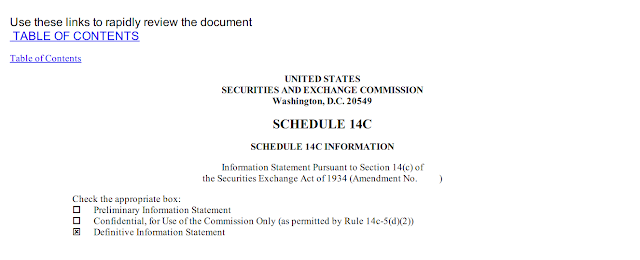Disclosure for Going Private Transactions
Fedaral securities laws impose some disclosure requirements for going private transactions. As a matter of law, directors of a target company are required to disclose all relavent information to public stockholders to make sure that these stockholders can make informed decision to approve or reject the going private transaction.
Then, SEC has established rules that particular information must be included in the public disclosure for a going private transaction.
Apart for the same filling disclosure as any other acquisiton acquisition transactions, a going private transaction also requires disclosure requirement of Rule 13e-3 of the Exchange Act. the basic disclosure required by SEC rules depend in apart on the structure of the transaction.
For a transaction structured as one-step merger, the target company must solicit approve of its stockholders with a proxy statement complying with Regulation 14A and Regulation 14C under the Exchange Act. For a transaction structured as two-step merger, the acquiror must file a tender offer statement on Schedule TO, which requires the acquiror to provide certain disclosure required by Regulation M-A under the Exchange Act. In addition, the target company must file a Schedule 14D-9 within ten business days after the commencement of the tender offer to disclose either that it recommends that stockholders accept or reject the tender offer or that it expresses no opinion.
- Preliminary Proxy Statement
- Confidential, for Use of the Commission Only (as permitted by Rule 14a-6(e)(2) )
- Definitive Proxy Statement
- Definitive Additional Materials
- Soliciting Material under §240.14a-12
- Preliminary Information Statement
- Confidential, for Use of the Commission Only (as permitted by Rule 14c-5(d)(2))
- Definitive Information Statement



Comments
Post a Comment